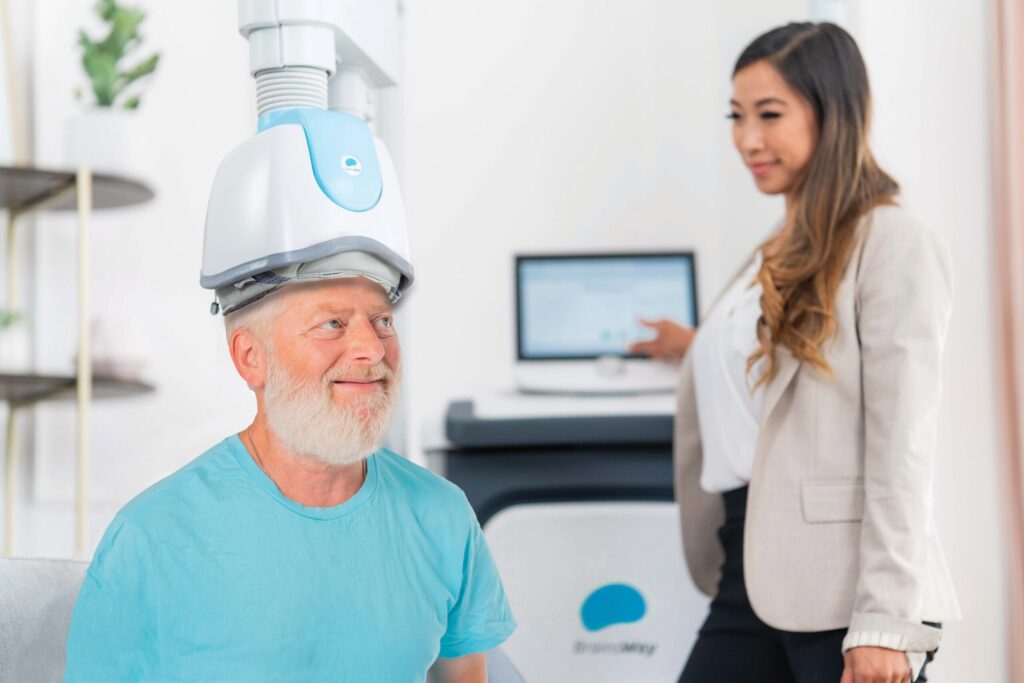Depression in older adults is a critical issue that often goes unnoticed and untreated. As we age, the likelihood of experiencing depression increases due to various factors such as isolation, chronic illness, and loss of loved ones. Despite the high prevalence, late-life depression is frequently underdiagnosed and inadequately treated. It’s time to break the stigma and recognize the importance of effective treatments, such as Transcranial Magnetic Stimulation (TMS), for our elderly population.
What is Late-Life Depression?
Late-life depression is a mood disorder affecting individuals aged 60 and above. It manifests through persistent sadness, loss of interest in activities, changes in appetite and sleep patterns, and difficulties in concentration. This condition not only diminishes the quality of life but also exacerbates physical health problems, leading to increased morbidity and mortality.
Challenges in Treating Late-Life Depression
Treating depression in older adults presents unique challenges. Older patients often have multiple medical conditions and may be taking several medications, making the management of depression more complex. Additionally, there is a pervasive misconception that depression is a normal part of aging, which can lead to reluctance in seeking treatment.
The Promise of TMS Treatment
Transcranial Magnetic Stimulation (TMS) is an innovative, non-invasive treatment that has shown significant promise in alleviating symptoms of depression. TMS uses magnetic fields to stimulate nerve cells in the brain, particularly in areas involved in mood regulation. This treatment has been proven effective for patients who have not responded to traditional antidepressant medications.
TMS and Older Adults: A Perfect Match
Despite its efficacy, many treatment centers hesitate to offer TMS to older adults, largely due to a lack of awareness and outdated misconceptions. However, research indicates that TMS is not only safe for older adults but also highly effective. Studies have demonstrated that older patients respond well to TMS, with many experiencing substantial improvement in their depressive symptoms.
Why Choose TMS for Late-Life Depression?
Conclusion
It’s time to challenge the outdated views on depression treatment in older adults and embrace the potential of TMS. By spreading awareness and advocating for the inclusion of older adults in TMS treatment programs, we can offer hope and improved quality of life to a population that has long been overlooked. If you or a loved one is struggling with late-life depression, consider exploring TMS as a viable and effective treatment option.
For more information, visit Brainsway’s Late-Life Depression Treatment.

"I can finally feel true happiness after 6 years of antidepressant cocktails... and I would recommend this place to everyone! TMS has been nothing short of a miracle for my depression and anxiety. Their cutting-edge technology pulled me out of a 3 month long depressive episode and helped me cut back on addictions I developed over many years of trying to self-medicate the pain away. Dr. Hy Gia Park, the technician Connor, and the receptionist Sharon are incredibly friendly, knowledgeable, and caring."
– E.C.